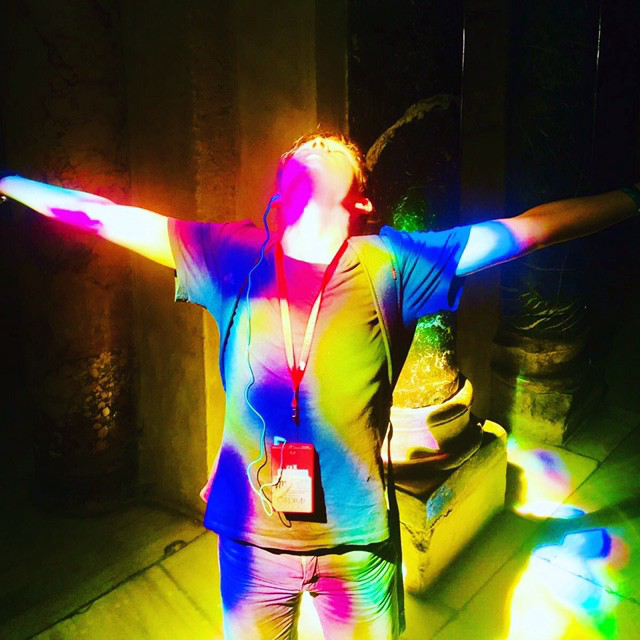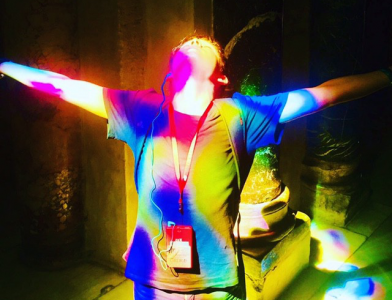We need new narratives and stories! 2019 can be made by us to the year in which we once again begin to tell stories: forcefully and enthusiastically.

Over the last few years we’ve been almost paralysed by Trump and Brexit, by autocrats and populists who like long forgotten shadows emerged from the woodwork of history. The old institutions, the political order established after World War II, the UN, the EU, and the old party system consisting of social democracy and christian conservatism, the neoliberalism of the 90s: all these are stories that have been boring us for quite some time and that do not contribute to any great extent to embedding our daily experiences into meaningful narratives. They are stories that no longer hold any promises, inspire enthusiasm or create meaning for the world in which we live today. The big issues of the last decade, i.e. the “bank bailouts”, the “Greek crisis”, the “refugee crisis” and the political measures taken in response to these issues were incomprehensible to the majority of the population. What was missing were the stories that could frame these episodes, allowing them to make sense.
This vacuum of meaning was exploited by populists, autocrats and antidemocrats. Their narrative was simple and familiar, and therefore accessible: “Everything was better in the old days! We need strong leadership again and firm boundaries. We must protect and defend ourselves and our identity, using all available means if need be.” In the absence of new ideas and responses, they reached deep into the dustbin of history, dragging up fears, resentments and xenophobia, dusting off tales of nationality and unambiguous identity that we all had long since boxed up together with the stories our grandfathers and great-grandfathers would tell us on Sunday evoking memes of wars, nations, empires and autocratic regimes. These old tales screamed into our post-modernism: “Let us once again be the way we have always been and spare us from the other, the different, the global!”
All of us who had believed that bit by bit this world could become more free, more just, more clean and more beautiful, were speechless in the face of the resurrection of these old stories. We stood in disbelief, shocked into wide-eyed astonishment. We were paralysed, motionless, in shock and at the same time fascinated by the spectacle of hysteria, coarse scurrility, lies and amorality these stories spewed out over us. We felt as if we had been granted a glimpse into an archaic collective subconscious which we thought we had securely confined to the dustbin of history by means of liberal decency, open democracy, critical discourse and a cosmopolitan mind-set.
This must change in 2019. We must recover from our shock-induced paralysis and we must tell the stories that are needed now. The world changes at breakneck speed. We don’t have the time that climate change denial and xenophobia is costing us. We cannot leisurely pick through those petty childish quarrels that distract us from the big and important projects. We need new and courageous solutions to our problems. We need innovative ideas to figure out how twelve billion people will be able to peacefully coexist in future with each other and with our planet.
The year 2019 should be the year in which we once again find our voice and in which we tell new and powerful stories that endow us with purpose. We should spurn the old tales and myths of nation and ethnicity and identity. The same goes for the stuffy, dusty, pallid stories of capitalism, communism and neoliberalism. Yes, the great old narratives are dead and a new totalitarian narrative is out of the question. But if we do not construct any new narratives, others will do it for us: the antidemocrats and autocrats, the extremists and populists. And they have been successful in giving people orientation and a framework that allows them to find apparent meaning and significance.
We can do that too, and we can do it better: We can tell innumerable and diverse stories of love, courage, positive change and effective engagement, all of which combine into a strong fabric, a large canvas depicting a networked narrative and an image of how we design a better world.
And in this process we can and must keep learning. Yes, we have neglected the fact that among other things people do need their local identities: the town quarter, the village, the town, the region, the country, their own language, culture and tradition, and their beliefs. But we also need an all-encompassing common identity: the Earth, Gaia, the planet we inhabit in all our diversity and which we share with other species. We must tell how we can work better together, shape our world together and live together, and we must talk about what is needed to do so. We must tell how we can learn from our experiences, how we can face conflicts and solve them together. We must tell how the new can emerge and how it can achieve sustainable success.
There are plenty of dangerous and challenging tasks for the protagonists of our stories, for us: We do not need to kill dragons or free princesses, but we must halt climate change, clean oceans from plastic, distribute wealth more equitably while protecting ecosystems, we must create natural abundance, restore soils and regenerate ecosystems, abolish nuclear and chemical weapons, reduce wars and solve global conflicts. We must learn to run our economy in a way that does not deplete and pollute the earth’s resources but maintains and if possible restores them. We must work on making every country on earth a safe and prosperous haven, so that anyone’s choice of where to live can be a matter of free will rather than being a matter of necessity for survival. And while we address these challenges we will face our individual and collective hero’s journeys, encounter our shadows, and grow, learn and transform in the process.
Underlying all these stories of new Herculean tasks is a common theme which needs to be clarified, i.e. the development of a new cultural technique of co-creation. We will need to tell and assure each other as to how we can manage to interact in creative and transformative processes while safeguarding and respecting all the disparities between us, and while leveraging our joint potential by means of fostering individual potentials.We will need to spell out how to successfully develop new ideas and solutions and shape this world in resonance with everyone and everything.
And as we begin to tell new stories, to construct a new narrative, we will reshape the world accordingly: by way of reformed and new institutions, by way of participatory project structures in our neighbourhoods, by way of new collaborative, democratic procedures in our parliaments and governmental institutions, and by way of co-creative global governance. We will offer accounts of the open and dynamic partnerships that help us to cooperate, to collaborate and to participate. And we will tell of the generative and empowering processes in which we encounter each other, get to know and understand each other, in which we help, heal and support one another, and in which we together become developers, creators and designers who transform the old and create the new, the emergent.
Let’s make 2019 a good year! Let us tell powerful stories be on this journey with that awaken enthusiasm and offer positive, forward-looking perspectives, stories that stimulate and inspire new creativity in us, stories that are driven by love, courage and abundance, and that bear within them the hope that peaceful and fulfilling coexistence on earth is possible.
I’m looking forward to be on this journey with you in 2019!
jascha rohr
